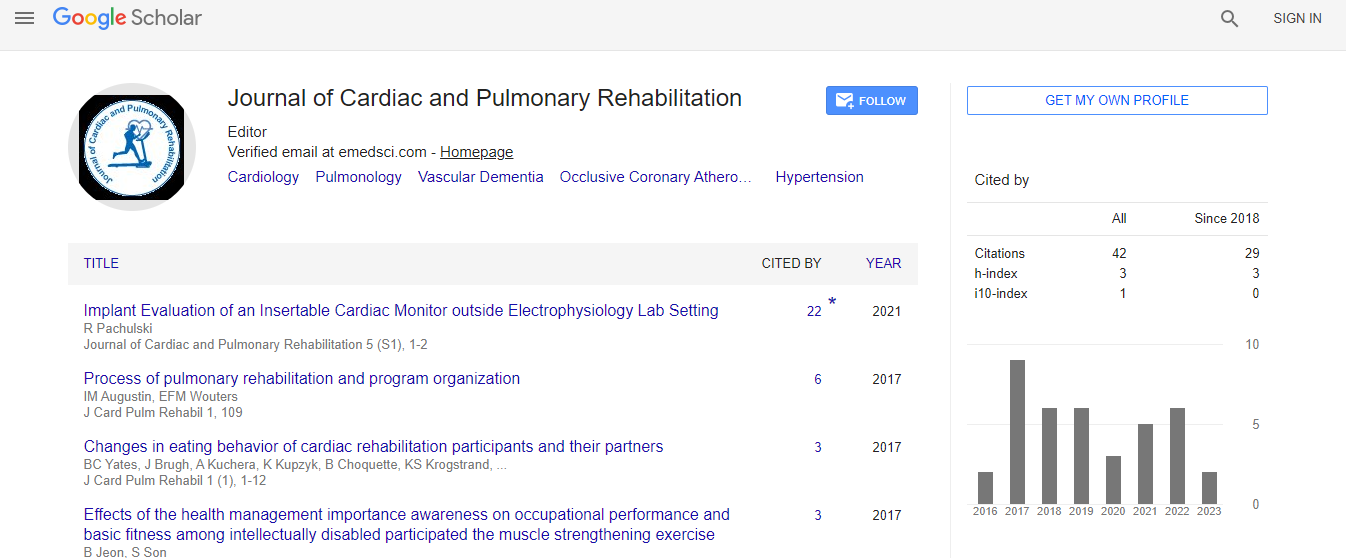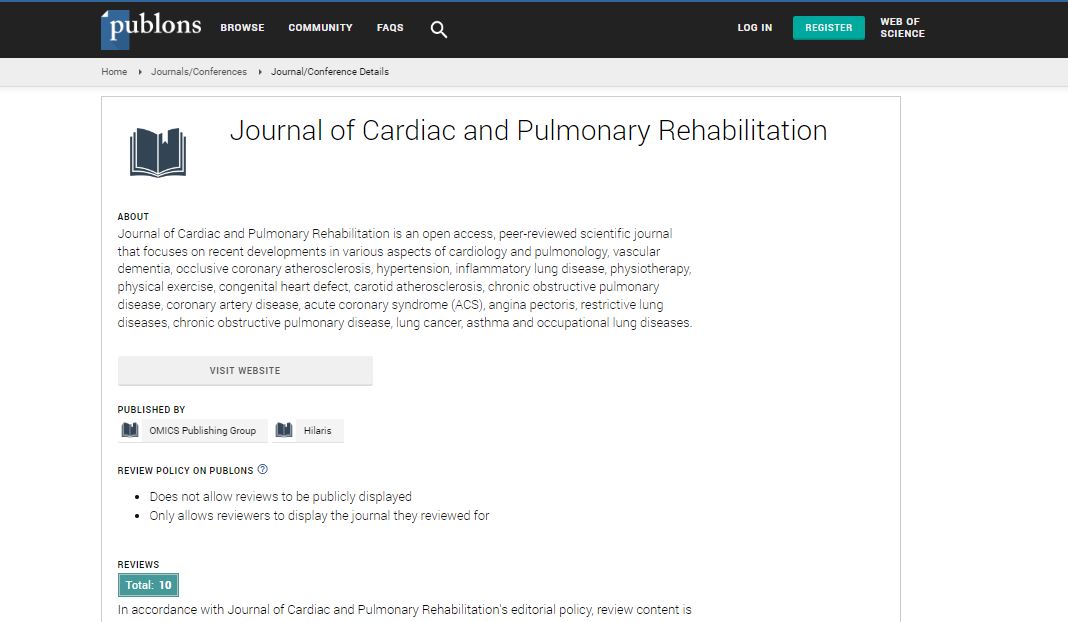Pulmonary Rehabilitation in COVID-19 Survivors: Restoring Lung Function and Enhancing Recovery Post-Infection
*Corresponding Author: Sundeep Bhakare, Clinical Research Department Symbiosis Medical College for Women Symbiosis University Hospitals and Research Centre, India, Email: sundeepbhakare.e@gmail.comReceived Date: Nov 05, 2024 / Published Date: Nov 29, 2024
Citation: Sundeep B (2024) Pulmonary Rehabilitation in COVID-19 Survivors: Restoring Lung Function and Enhancing Recovery Post-Infection. J Card Pulm Rehabi 8: 287.
Copyright: © 2024 Sundeep B. This is an open-access article distributed under the terms of the Creative Commons Attribution License, which permits unrestricted use, distribution, and reproduction in any medium, provided the original author and source are credited.
Abstract
Pulmonary rehabilitation (PR) has emerged as a critical intervention for individuals recovering from COVID-19, particularly those with post-infection respiratory dysfunction. COVID-19 survivors often experience persistent pulmonary symptoms such as shortness of breath, fatigue, and reduced exercise tolerance, which can significantly impair their quality of life. PR is a multidisciplinary approach designed to improve respiratory function, increase physical endurance, and enhance overall well-being through tailored exercise programs, education, and psychological support. This review explores the role of pulmonary rehabilitation in the recovery process of COVID-19 survivors, focusing on the physiological and psychological benefits. Evidence suggests that PR can effectively restore lung function, reduce dyspnea, and promote physical and emotional recovery. The article also highlights key challenges in implementing PR for COVID-19 survivors, including patient selection, program accessibility, and long-term monitoring. Future research should focus on optimizing PR protocols, exploring its benefits in various subgroups, and establishing standardized guidelines for post-COVID-19 rehabilitation.

 Spanish
Spanish  Chinese
Chinese  Russian
Russian  German
German  French
French  Japanese
Japanese  Portuguese
Portuguese  Hindi
Hindi 
